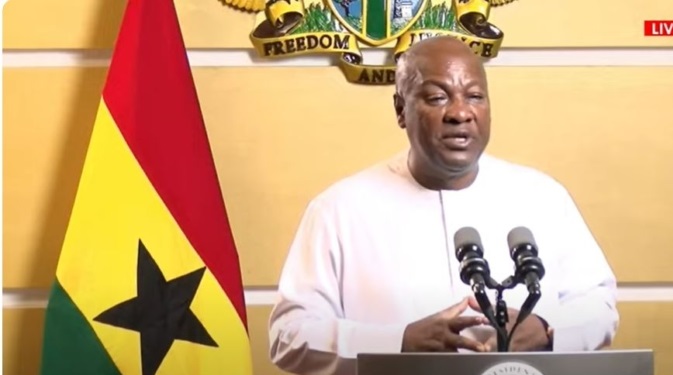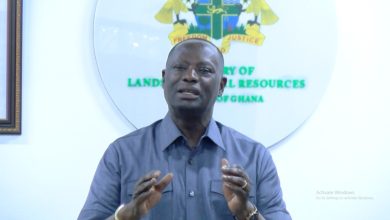
President John Dramani Mahama since assuming office on January 7, this year, has demonstrated his commitment to constitute a government that is ethical, responsive and worthy of the people’s trust.
Consequently, he has served notice that any appointee who is required to declare his or her asset as prescribed in Article 286 of the 1992 Constitution and Public Office Holders Declaration of Asset and Disqualification Act, (Act 550), but fails to comply, will be shown the exit from government.
“If by close of day, Wednesday, May 7, 2025, any of you still fails to declare your assets, count yourself automatically dismissed,” President Mahama pledged.
The President gave this indication at the Jubilee House, in Accra, when he launched the Code of Conduct, to guide actions and decision-making of appointees, and to spell out consequences of those who’ll be in breach of same.
President Mahama’s warning comes on the back of an earlier deadline of March 31, this year, which he gave in February, for all appointees to declare their assets, after the President declared his assets.
He said appointees who failed to meet the March 31 deadline would forfeit three months of salary, to be paid into the Ghana Medical Trust Fund, as punishment, and additional one month salary, as he directed at the launch of the Fund.
We cannot better agree with President Mahama that the asset declaration regime in particular, is an important mechanism, to check corruption and abuse of office, and must be respected by all.
Aside, the code among other things, enjoins appointees to declare their interests in entities that do business with government, to avoid conflict of interest, sets limits for gifts, mandates appointees to procure prior approval before any international travel, and prohibits them from purchasing state assets.
The code applies to the President and his vice, senior government officials at the presidency, ministers and deputies, presidential staffers, chief executive officers and deputies, members of the Council of State, board members and other appointees within the executive arm of government. Sanctions for breach of the code range from public apology, reprimand, suspension, resignation and ultimately dismissal.
The President explained that the Code of Conduct has become apparent because “we must build a new political culture that is rooted in transparency, humility and ethical leadership”.
We hope that the code does not become a ceremonial move, but rather an enforceable framework that would outline what is expected of every individual appointed under the President’s administration, as he alluded.
Corruption in the country is a hydra-headed challenge, as successive governments since independence have been accused of perpetuating the practice, making it a national cancer, permeating all levels of leadership, including the youth entering politics.
This is why The Ghanaian Times calls for more punitive measures in eliminating the canker, rooted in fairness, so that both the government and the governed can be held accountable.
Systemic corruption persists not only because of those who commit it, but also due to the fact that leaders often remain silent or refuse to act.
One may ask whether sanctions for breach of the code and asset declaration alone are punitive enough to deter government appointees from engaging in corruption and abuse of power.
It is in this vein, the paper encourages the Ghana Police Service, Serious Fraud Office and Economic and Organised Crime Office inter alia, to be alive to their responsibilities, by investigating violations of anti-corruption directives, for prosecution and the necessary punishments.
We also call on the media, public, civil society organisations and opinion leaders, to join the President’s renewed fight against corruption.
This charge, we all need to abide by, bearing in mind that no country can attain sustainable development, when corruption remains unchecked.




